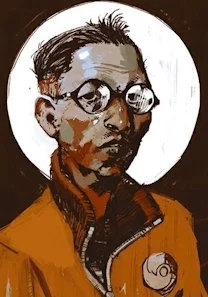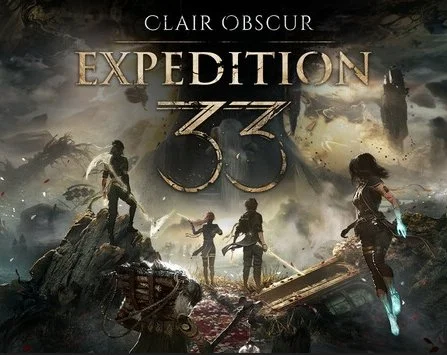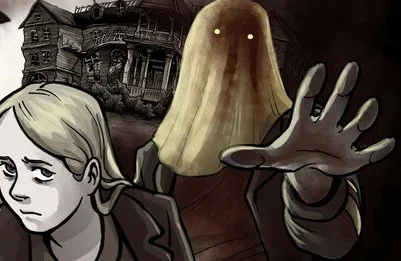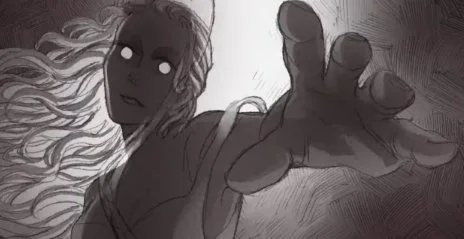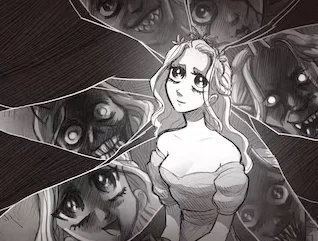GTA6 vs. the Real America: Why Satire Cannot Keep Up With the News Cycle
When Rockstar co founder Dan Houser reflected on the difficulty of writing satire about modern American politics, he described a problem that has spread far beyond video games. He suggested that contemporary political events often feel more absurd than anything writers could invent. That insight gives shape to one of the most important creative dilemmas facing Grand Theft Auto VI. The franchise has always thrived on irreverent caricature and cartoonish exaggeration, yet it now confronts a culture where the daily news already reads like self parody. This shift matters not only for entertainment but for psychology. Satire functions by creating a gap between reality and fiction. When that gap closes, the entire genre struggles to find purpose.
GTA6 will arrive in a world where the sociopolitical environment moves faster, provokes stronger emotional reactions and encourages more literal interpretations than in any previous era of the series. Understanding this landscape helps explain why Rockstar may need to adapt its storytelling and its approach to social criticism. It also reveals something larger about the way we process humour in an age of outrage, fragmentation and constant novelty.
The Escalating Absurdity of Real World Politics
To grasp why satire struggles, it is worth thinking about how the cultural baseline has changed. In the early 2000s, the political landscape certainly contained drama and division, but it still carried a sense of structure. Public behaviour, institutional norms and the media environment followed predictable patterns. Satire worked because reality provided a stable reference point and creators exaggerated from that foundation.
Over the last decade, that stability has eroded. Routine political events now feel chaotic. Public figures speak in soundbites designed to trend online. Conspiracy theories spread with unprecedented speed. Entire news cycles rise and fall within hours. The environment resembles an accelerating feedback loop where absurdity is not an outlier but a constant feature of public life.
Satire depends on the ability to push reality slightly past its breaking point. When reality already lives near that limit, exaggeration becomes less effective. A fictional demagogue is no longer shocking when real politicians deliver performances that echo professional wrestling. A satirical mission about online misinformation feels predictable when genuine conspiracies circulate rapidly through social media. The writer says something wild to make a point, but the audience has already seen something similar on the evening news.
For the GTA series, this is a fundamental problem. The games have always relied on caricatures of American excess. Talk radio hosts scream nonsense. Corporations behave monstrously. Politicians act like buffoons. These flourishes landed because the real world was still recognisably more grounded. Now the heightened style of GTA risks feeling less like an exaggeration and more like a documentary. Instead of highlighting the ridiculousness of society, the exaggeration simply matches it. The satirical function begins to collapse.
Why Modern Audiences Get Offended Instead of Amused
The second challenge is not the absurdity of politics but the psychology of the people consuming satire. Audience behaviour has changed. Polarisation, digital echo chambers and social media reactions have created communities that interpret jokes far more literally and defensively than before.
Satire requires an assumption of shared context. It expects the audience to understand the reference, recognise the exaggeration and tolerate discomfort long enough to reach the insight embedded in the humour. That process collapses under conditions of hyper partisanship. People increasingly treat cultural material as ideological signals rather than artistic expressions. If a joke appears to target a group they identify with, they react with hostility. If it appears to target their opponents, they treat it as validation rather than critique.
Psychological research on motivated interpretation supports this. People process ambiguous satire in ways that reinforce their existing beliefs. Instead of asking what the creator intended, they ask how the message affects their group identity. Under these conditions, irony becomes hazardous. Satire can inflame rather than illuminate. A joke designed to criticise collective behaviour might be interpreted as a one sided attack. A joke intended to mock authoritarian tendencies might be embraced by people who misunderstand it as celebration.
For a franchise like GTA, this is perilous. The series traditionally attacked everything in sight. It mocked left wing activists and right wing conspiracists. It satirised police, corporations, cults, celebrities, influencers and millionaires. In the past that broad irreverence was understood as part of the brand. Today any specific target risks accusations of political bias. Audiences who no longer share a common cultural baseline may not agree that a caricature is a caricature. They may see it as a hostile statement aimed at their identity group.
That defensive posture has consequences for writers. The safest creative choice becomes avoidance rather than confrontation. When every joke is scrutinised through ideological filters, satire becomes an exhausting exercise in risk management. This climate discourages boldness. It encourages ambiguity or retreat into safer territory.
The Risk of Timely References Ageing Instantly
Alongside audience psychology sits a structural challenge that has become more severe in the digital age. The GTA games have extremely long development cycles. GTA5 was released in 2013. GTA6 has taken more than a decade to develop. Writing a topical joke in 2023 for a game that releases in 2026 invites a specific danger. The reference might already be obsolete by the time it reaches players.
Before the current era, this was less of a problem. Cultural trends moved more slowly. If GTA inserted a parody of a television show or corporate scandal, the target tended to remain recognisable for years. Contemporary society now shifts at a blistering pace. A political scandal that dominates news coverage for two weeks may be forgotten within two months. A meme that seems ubiquitous today may be incomprehensible a year from now.
For a game with a long production pipeline, this creates a strategic dilemma. Writers cannot afford to chase the news cycle. They cannot rely on short lived cultural artifacts to anchor their commentary. Yet they also cannot ignore the world entirely because the franchise is defined by its relationship to American culture.
The result is a narrowing window for effective satire. If the writing references current events directly, the jokes risk becoming stale. If the writing avoids current events, the satire risks feeling disconnected from modern reality. The tightrope becomes almost impossible to walk.
How GTA6 May Change Its Tone and Story
To understand how Rockstar might handle this dilemma, one has to look at the signals emerging from the development and from recent shifts in the company’s approach.
A Stronger Emphasis on Character and Emotion
The promotional material for GTA6 indicates a more intimate narrative built around two protagonists, Lucia and Jason. Their partnership appears to be positioned as the emotional centre of the game. This suggests a departure from the entirely cynical tone of earlier entries. Character centred storytelling can absorb social commentary without relying on overt parody. The player engages with the individuals first and the satire becomes environmental rather than confrontational.
This approach allows Rockstar to navigate sensitive material more carefully. Instead of producing skits about politicians or activists, the game can explore themes like inequality, organised crime, surveillance or social fragmentation through the lived experience of the characters.
Satire as a Background Texture
Even if GTA6 softens its overt satire, it will almost certainly retain its traditional world building humour. Radio stations, billboards, brand names and television advertisements will likely continue to mock American consumer culture. These elements are easier to update and less likely to cause controversy because they target systemic issues rather than specific groups. They also age more gracefully than references to transient political events.
By shifting satire into the background, Rockstar can preserve the series’ identity without engaging directly in divisive cultural debates. This approach treats satire not as the narrative engine but as atmospheric colour.
Avoidance of Direct Political Parody
It seems increasingly likely that GTA6 will avoid caricatures of real politicians or precise analogues of recent events. Parodying specific scandals from the 2020s would risk both irrelevance and backlash. Parodying broader behaviours or cultural tendencies is more sustainable. For example, the game might comment on influencer culture without targeting specific influencers. It might depict conspiracy movements without echoing real group names. It might portray institutional dysfunction without referencing actual office holders.
This strategy creates enough distance between fiction and reality to protect the game from accusations of political alignment. It also avoids the trap of putting a timestamp on the story.
Increased Sensitivity to Cultural Shifts
Rockstar has already demonstrated greater cultural awareness in recent years. The company removed some content from older games that was criticised for perpetuating harmful stereotypes. This suggests the writers of GTA6 are thinking carefully about how humour lands in the current climate. As a result, players can expect a more selective and deliberate form of satire that focuses on powerful institutions, predatory systems and exploitative dynamics rather than on vulnerable groups.
This evolution reflects a general trend in entertainment. Contemporary satire is most effective when it targets structures rather than identities. In a polarised environment, individual targets provoke conflict while structural targets provoke reflection.
The Broader Psychological Meaning of These Changes
GTA6 is not only a video game. It is a cultural artifact that mirrors the changing cognitive landscape of its audience. The difficulties faced by Rockstar’s writers offer a window into the social psychology of humour.
When people are overwhelmed by rapid news cycles, satire loses its contrast effect. When citizens feel threatened by political outgroups, satire triggers defensiveness. When attention spans shrink under the pressure of constant novelty, satire ages too quickly to have an impact. These forces diminish the role satire once played in democratic culture. It used to offer a shared moment of recognition. Now it often produces fragmentation.
The solution is not to abandon humour. It is to adapt it. The future of satire may lie in subtlety rather than spectacle, in empathy rather than hostility and in sustained character driven storytelling rather than headline chasing. GTA6 appears poised to experiment with this direction. If the game succeeds, it may teach other creators how to integrate satire into a world that has become resistant to it.
Simply Put
GTA6 enters the cultural arena at a time when satire struggles to find traction. Real world politics has become theatrical and unpredictable. Audiences are more sensitive, more polarised and more likely to interpret jokes through ideological filters. Cultural trends shift too quickly to allow long development cycles to remain topical. These pressures force Rockstar to rethink what satire can be.
Rather than trying to shout over the noise of real politics, GTA6 is likely to offer a blend of grounded storytelling and environmental humour. Its satire may be quieter but more focused, less dependent on caricature and more concerned with the underlying structures that produce absurdity in the first place.
If the game takes this path, it will reflect a broader psychological truth. Satire cannot simply exaggerate reality when reality is already extreme. Instead, it must help audiences make sense of why the world feels absurd in the first place. That task requires more than jokes. It requires narrative insight, emotional depth and a new understanding of how people interpret meaning in an age dominated by outrage and acceleration.
References
Rockstar Games and GTA 6 coverage on satire, tone and character focus. Destructoid
The Irony of Satire - Heather L. LaMarre, Kristen D. Landreville, Michael A. Beam, 2009
Satire and Journalism | Oxford Research Encyclopedia of Communication
Characteristics of Satire | Dr. Philip Irving Mitchell | Dallas Baptist University

